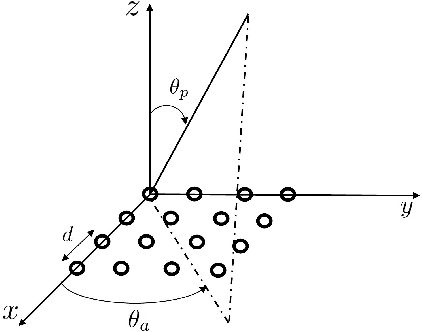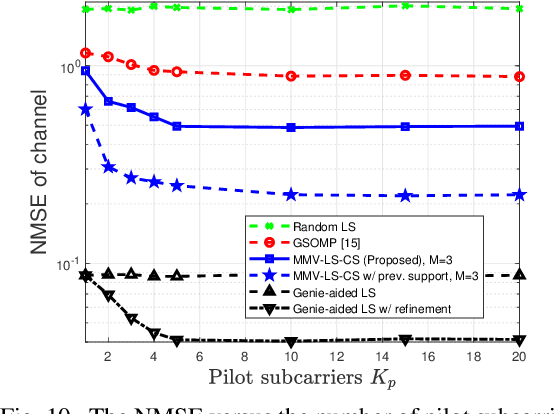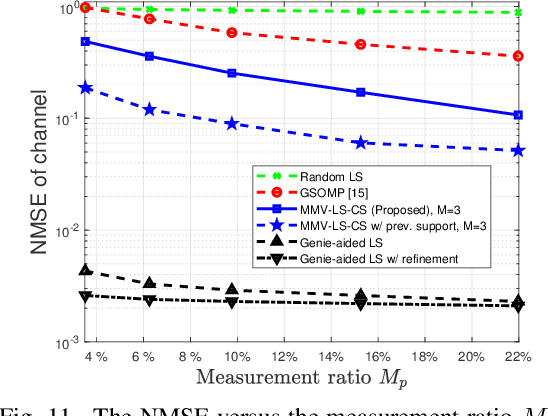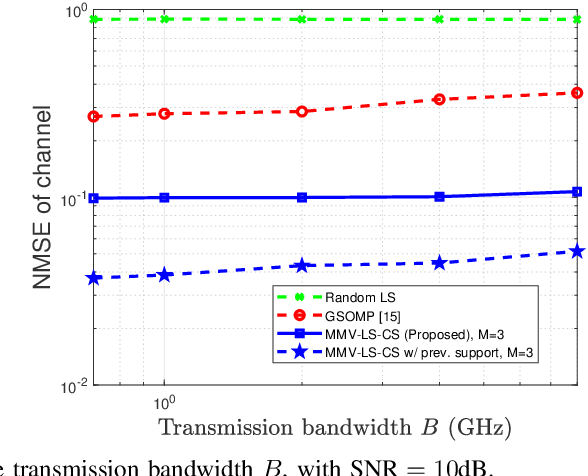Dual-Wideband Time-Varying Sub-Terahertz Massive MIMO Systems: A Compressed Training Framework
Paper and Code
Jan 04, 2022



Designers of beyond-5G systems are planning to use new frequencies in the millimeter wave (mmWave) and sub-terahertz (sub-THz) bands to meet ever-increasing demand for wireless broadband access. Sub-THz communication, however, will come with many challenges of mmWave communication and new challenges associated with the wider bandwidths, larger numbers of antennas and harsher propagation characteristics. Notably the frequency- and spatial-wideband (dual-wideband) effects are significant at sub-THz. To address these challenges, this paper presents a compressed training framework to estimate the sub-THz time-varying MIMO-OFDM channels. A set of frequency-dependent array response matrices are constructed, enabling the channel recovery from multiple observations across subcarriers via multiple measurement vectors (MMV). Capitalizing on the temporal correlation, MMV least squares (MMV-LS) is designed to estimate the channel on the previous beam index support, followed by MMV compressed sensing (MMV-CS) on the residual signal to estimate the time-varying channel components. Furthermore, a channel refinement algorithm is proposed to estimate the path coefficients and time delays of the dominant paths. To reduce the computational complexity, a sequential search method using hierarchical codebooks is proposed for greedy beam selection. Numerical results show that MMV-LS-CS achieves a more accurate and robust channel estimation than state-of-the-art algorithms on time-varying dual-wideband MIMO-OFDM.
 Add to Chrome
Add to Chrome Add to Firefox
Add to Firefox Add to Edge
Add to Edge